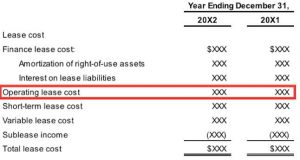
S-corps often begin life as C-corps, as it’s the default designation of a newly formed corporation. Before setting out to elect S-corp status, review the IRS’s information on S-corp filing requirements and eligibility requirements and consult a tax or legal professional to make sure it’s the right choice for your business. The IRS’s webpage about filing with Form 2553 contains the most up-to-date links to tax resources and other helpful information. Like a traditional corporation, an S corporation must file an annual federal tax return.
Steps to Forming an LLC and Electing S Corp Status
So, be sure to carefully weigh the various pros and cons before deciding how you want to move forward. Consult a tax professional about whether the S corporation election would be best for your business. Since establishing as an S-corp can save you significantly in taxes, it may be worth putting some of that money into hiring a tax professional to help you with the various forms and filings required to operate your S-corp. If you have a larger, faster-growing company, sticking pharmacy accounting with the C corporation might be a better fit. That structure allows multiple classes of stock and no limits on shareholders.

Whether you’re forming an LLC or a corporation, it’s important to know that not every state follows the same process. For example, most states follow the five steps below for forming an LLC, but three states (New York, Arizona, and Nebraska) also have a publication requirement. California and West Virginia also have additional steps for LLC formation.
Compensation Requirements
In return for this tax benefit, S corps face certain IRS-mandated restrictions. But when a C corporation qualifies to be an S corp, those profits are only taxed at the individual level. This is called “pass-through taxation” because it allows you to pass corporate income through to the shareholders without first being taxed at allocating llc recourse debts the corporate level. LLCs are also taxed this way unless they choose to be taxed as a corporation.
Try Rocket Lawyer FREE for 7 days
You also can find out more about state business income and employment taxes in other Nolo articles. Most states don’t require you to make a separate S corp election at the state level, but several do. For those states, you would need to complete a separate form to be taxed as an S corp for state taxes.
We need to add here that, since the 2017 Tax Cuts and Jobs Act, the corporate tax rate has been lowered to a flat 21%. So, the disadvantages of double taxation aren’t as severe now as they were. They’re compensated by receiving their share of profits from the LLC, but they can’t be employed by the LLC. Being self-employed means paying self-employment taxes (Social Security and Medicare, which adds up to about 15.3%) on all profits they receive from the LLC. This is more than the taxes they’d pay when working for someone else because their employer would pay part of them.
When it comes to corporate classes, the S Corporation form has more requirements than other types of business entities. Each state has slightly different requirements for corporations to qualify. Here are the steps to form an S-Corporation in your state of choosing.
- The profits would only be taxed on the personal income tax returns of the shareholders or members.
- When it comes to corporate classes, the S Corporation form has more requirements than other types of business entities.
- S corporations themselves may owe no taxes on their profits, but that doesn’t mean that handling S corporation taxes, or completing a Form 1120S along with the required schedules, is a piece of cake.
- This arrangement is referred to as “double taxation” and has historically been viewed as the price to pay for a corporation’s limited liability advantages.
- You need to know if the S corp tax status versus a default LLC tax status will be better for your business.
As a pass-through entity, LLC variable cost ratio owners also have tax benefits due to the Tax Cuts and Jobs Act, just as S corp owners do. Without a distinct business entity, however, there’s no legal difference between the business’s assets, debts and other liabilities and those of the owner. Unlike a corporation, this means the owner is directly on the hook for any legal or financial failures of the business. Sole proprietorship is the simplest structure for a one-owner business, giving the owner few regulatory burdens and a high degree of control and flexibility.
